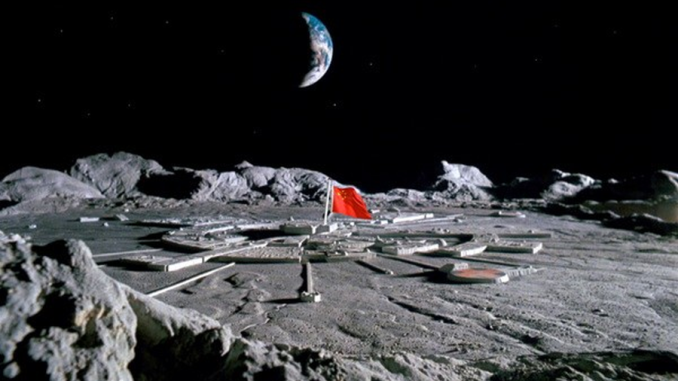
Russia and China recently announced they will work together to construct a research station on the moon. This lunar collaboration between two of America’s greatest geopolitical adversaries marks an escalation of great power competition for the final frontier, particularly with regard to Beijing.
The U.S. has long held a decisive advantage in space exploration, and to this day remains the only country to land astronauts on the Moon and to successfully land a rover on Mars (feats it has accomplished, respectively, six and nine times).
However, China is catching up. In 2016, it successfully launched the high-payload “monster rocket” the Long March 5, one of the world’s largest space rockets to date. In 2019, it became the first country to land an unmanned spacecraft on the far side of the moon. Last year, it became just the third country to successfully bring lunar rock samples back to Earth (after the U.S. and USSR), and now, they have their sights set on Mars, the south pole of the moon, and even establishing their own space station.
To be sure, the U.S. still retains a considerable advantage: Blaine Curcio, the founder of a space industry research firm, estimates that China still lags the U.S. in space by 10 to 15 years. However, the breakneck speed with which China has made progress means America must nonetheless stay vigilant in preserving its advantage, or risk soon losing it.
1. Why should we care?
The battle for space is not just over hearts and minds; it’s also a pivotal national security issue.
America’s military advantage may depend on its superiority in space. From reconnaissance satellites to space-based GPS and spacecraft communication systems, senior DOD official James Anderson testified that space systems “underpin nearly every weapon in our arsenal.” And these weapons have become increasingly vulnerable, as China has invested heavily in counterspace weaponry to disable American technology. In 2007, China demonstrated its capabilities, shooting down a dead weather satellite. The prospect of an adversary being able to disable technical infrastructure on which our entire military relies is deeply worrying.
Furthermore, China, like the U.S., is experimenting with space-based kinetic weaponry known as “rods from god” that could be as powerful as nuclear weapons. This technology is only theoretical at the moment, but at one point, so were nuclear bombs.
Alarmingly, this recent lunar development may also mark the beginning of a China-led international coalition to rival America in space, as China has been excluded from collaborating with the U.S. since the passage of the Wolf Amendment in 2011. It has formed satellite partnerships with several American allies, including France, Italy, and Brazil, and is opening this most recent venture to “all interested countries.” Commentators see it as a response to the U.S.’ October 2020 Artemis Accords, which envisaged American-led international lunar cooperation.
2. What does this say about our democracy?
In theory, democracies should be able to focus on strategic objectives in a way that autocracies can’t, as dictatorships are at the mercy of the whims of their leaders and frequently beset by instability and corruption.
However, in practice, it is NASA that has been victimized by the political process. Its focus has been redirected from the Moon, to Mars, then back to the Moon under the past three administrations, and decades-long initiatives are often abandoned years in. On the other hand, China has consistently invested in cutting-edge space technologies like quantum satellites. The U.S. must find the political will to renew its commitment to ambitious space goals to stay ahead, leveraging the dynamism of its private sector and the Space Force’s cybersecurity capabilities.
Six decades ago, America asserted its space superiority with a bang. Now, it could soon lose it with a whimper. The first step to reclaiming the spirit that transfixed the nation, inspired a generation of scientists, and beat Khrushchev is simply caring about space once again; with Xi on our heels, we will need to.



